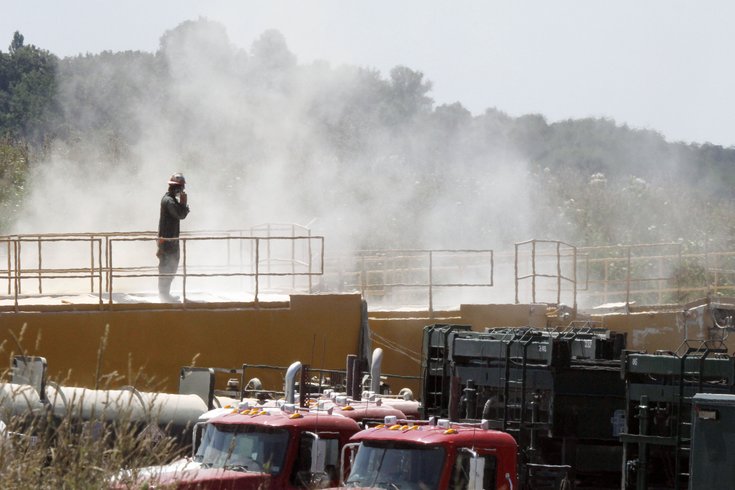
June 04, 2015
 Keith Srakocic/AP
Keith Srakocic/AP
In this photo made on Wednesday, July 27, 2011, a Pennsylvania worker stands on top of a storage bin as the dust of the powder used to make a mixture with water used in the hydraulic fracturing process billows above.
Fracking has not led to widespread, systemic pollution of drinking water, the Environmental Protection Agency (EPA) will say on Thursday in a long-awaited study, sources who have seen the assessment said.
The study, five years in the making, found some drinking water vulnerabilities to hydraulic fracturing, such as where supplies were scarce, but overall saw little impact from the drilling technique.
In its review of data sources "available to the agency," the EPA found specific instances where fracking affected water sources but found that they were small relative to the overall number of fracking sites around the United States.
“EPA’s draft assessment will give state regulators, tribes and local communities and industry around the country a critical resource to identify how best to protect public health and their drinking water resources,” Dr. Thomas Burke, EPA’s science advisor and deputy assistant administrator of EPA’s Office of Research and Development, said in a statement seen by industry sources.